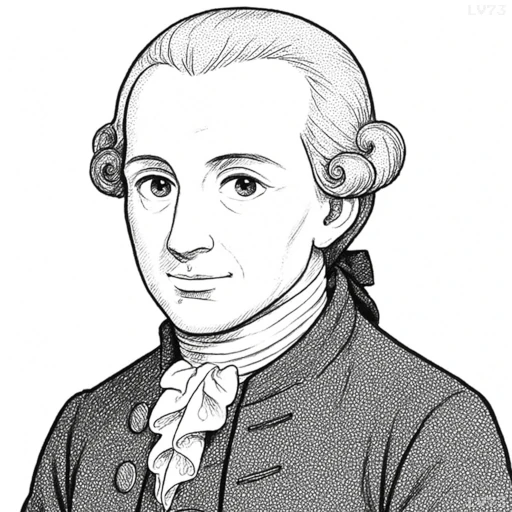“Morality is not the doctrine of how we may make ourselves happy, but how we may make ourselves worthy of happiness.”

- April 22, 1724 – February 12, 1804
- Born in Germany (East Prussia)
- Philosopher
table of contents
Quote
“Morality is not the doctrine of how we may make ourselves happy, but how we may make ourselves worthy of happiness.”
Explanation
In this quote, Immanuel Kant distinguishes between personal happiness and moral worth. Kant argues that morality is not about pursuing personal joy or pleasure, but about living in a way that makes us worthy of happiness by fulfilling our moral duties. According to his ethical system, actions are morally right not because they lead to happiness, but because they are done in accordance with universal moral laws. This reflects his broader philosophy, where he insists that people should act out of a sense of duty, driven by reason, rather than seeking self-interest or the pursuit of personal gain.
Kant’s perspective offers an important challenge to contemporary views that often associate morality with the pursuit of happiness, a concept found in many modern ethical systems, such as utilitarianism. In today’s world, people may frequently make decisions based on what brings them immediate satisfaction, whether through material wealth, pleasure, or comfort. However, Kant’s view emphasizes the importance of moral integrity, suggesting that true fulfillment comes from acting ethically, regardless of the immediate outcomes. For instance, someone might choose to act altruistically, even if it does not bring them personal happiness, because it aligns with a higher moral duty.
Historically, Kant’s work emerged during the Age of Enlightenment, a period when the focus on reason and autonomy was central to philosophical thought. In contrast to earlier religious or utilitarian moral frameworks, Kant proposed a deontological approach, where the rightness of an action is determined by the moral law, not by its consequences. This quote reflects the idea that morality is about being a person who deserves happiness through adherence to these duties, rather than chasing fleeting pleasures. It continues to resonate in ethical debates today, where discussions around personal responsibility and long-term well-being often challenge the immediate pursuit of happiness.
Would you like to share your impressions or related stories about this quote in the comments section?


